This game-changing book empowers readers to become confident, independent, wise decision-makers-- savvy to how our emotions, moods, and habits can trip us up.
An investor wonders whether to put his money into the stock market or to keep it in a savings account. A patient is torn between opting for surgery and trying an experimental drug therapy. A college-bound student questions whether to take on debt to attend an Ivy League school or to choose a public institution with low tuition.
We face momentous decisions with important consequences throughout our lives. We have never had better access to information and expertise, yet this data deluge has become a double-edged sword. Which sources of information are credible? How can we separate the signal from the noise? Whose advice can we trust?
All of these questions are reasons for us to become empowered decision-makers capable of making high-stakes choices ourselves. Whether you are a politician, a businessperson, a professional, or a parent, now is the time to take a radically different approach. In Eyes Wide Open, the bestselling author and visionary thinker Noreena Hertz shares insights from the latest research along with practical advice, including why looking at information in black and white rather than in color can lead to better decisions why it's smart to be skeptical about experts' pronouncements, and how to identify the best among them why it's crucial to carve out time to think, even in moments of crisis how and why you should regulate your emotional thermostat to make smart decisions why you need to shake up your social network if you don't want only to reinforce what you already know and amplify the beliefs you already have
It's time to make decisions with our eyes wide open--for the sake of our health, our wealth, and our future security.
No musician has lived a more transformational, or more tragic, life than Charlie Parker, one of the most talented and influential figures of the twentieth century. From the start of his career in the late 1930s, Parker was a new kind of American artist: a revolutionary musician who internalized all of popular music and blew it back through his alto saxophone "at the tempo of emergency"--even as he wrestled with a drug addiction that would ultimately contribute to his death at thirty-four.
Yet no writer has fully captured the arc and texture of Parker's personal story . . . until now. Kansas City Lightning, the first in a two-volume life of Parker by Stanley Crouch, draws on decades of original interviews with peers, collaborators, and family members to reveal Parker as he emerged from the landscapes--literal and artistic--that he inhabited. A precocious child, shy yet self-possessed, Charlie ventured early into the nightlife of wide-open Depression Kansas City, a veritable stomping ground for such bandleaders as Walter Page, Bennie Moten, and Moten's successor, Count Basie, the king of Kansas City swing. Inspired by saxophonists Lester Young and Chu Berry, trumpeter Roy Eldridge, and his mentor Buster Smith, Parker endured initial humiliation on the bandstand--yet persevered until he mastered the idiom and began to transcend it.
Kansas City Lightning follows Parker from the "freak shows" and "spook breakfasts" of late-night Kansas City, to the segregated union halls of Chicago, and finally to New York's Harlem ballrooms. Most intimately, it brings us into young Charlie Parker's family circle, as he plunged headlong into a very adult world--lured by both music and drugs, torn between his oddly protective mother and Rebecca Ruffin, the impressionable young woman whose romance with Charlie is at the bittersweet heart of this story.
With the musical wisdom of a lifetime jazz scholar, the cultural insights of an indispensable social critic, and the narrative skill of a writer at the height of his powers, Crouch brings Parker back to glorious, surprising, and deeply moving life.
With the 2006 publication of The God Delusion, the name Richard Dawkins became a byword for ruthless skepticism and "brilliant, impassioned, articulate, impolite" debate (San Francisco Chronicle). his first memoir offers a more personal view.
His first book, The Selfish Gene, caused a seismic shift in the study of biology by proffering the gene-centered view of evolution. It was also in this book that Dawkins coined the term meme, a unit of cultural evolution, which has itself become a mainstay in contemporary culture.
In An Appetite for Wonder, Richard Dawkins shares a rare view into his early life, his intellectual awakening at Oxford, and his path to writing The Selfish Gene. He paints a vivid picture of his idyllic childhood in colonial Africa, peppered with sketches of his colorful ancestors, charming parents, and the peculiarities of colonial life right after World War II. At boarding school, despite a near-religious encounter with an Elvis record, he began his career as a skeptic by refusing to kneel for prayer in chapel. Despite some inspired teaching throughout primary and secondary school, it was only when he got to Oxford that his intellectual curiosity took full flight.
Arriving at Oxford in 1959, when undergraduates "left Elvis behind" for Bach or the Modern Jazz Quartet, Dawkins began to study zoology and was introduced to some of the university's legendary mentors as well as its tutorial system. It's to this unique educational system that Dawkins credits his awakening, as it invited young people to become scholars by encouraging them to pose rigorous questions and scour the library for the latest research rather than textbook "teaching to" any kind of test. His career as a fellow and lecturer at Oxford took an unexpected turn when, in 1973, a serious strike in Britain caused prolonged electricity cuts, and he was forced to pause his computer-based research. Provoked by the then widespread misunderstanding of natural selection known as "group selection" and inspired by the work of William Hamilton, Robert Trivers, and John Maynard Smith, he began to write a book he called, jokingly, "my bestseller." It was, of course, The Selfish Gene.
Here, for the first time, is an intimate memoir of the childhood and intellectual development of the evolutionary biologist and world-famous atheist, and the story of how he came to write what is widely held to be one of the most important books of the twentieth century.
In June 1967, Israel achieved the unimaginable--a decisive victory against Egypt, Jordan, and Syria in the Six-Day War. The most symbolic triumph for the young nation was the reunification of Israeli West Jerusalem and Jordanian East Jerusalem, achieved at great cost by a group of paratroopers from the 55th Paratroopers Reserve Brigade. In restoring Jewish sovereignty to the Holy City, these men fulfilled the dream of two millennia, changing the history of Israel and of the Middle East. And as veteran journalist Yossi Klein Halevi shows in Like Dreamers, they played pivotal roles in shaping Israel's destiny long after their resounding military success.
A masterful storyteller, Halevi tracks down seven members of the 55th Brigade and traces their lives through the decades following the Six-Day War. But as his narrative reveals, despite the intensity of their shared experience protecting Israel, in their postwar paths they nurture drastically divergent visions for the country's future. Yoel Bin-Nun emerges at the forefront of the religious Zionist West Bank settlement movement, but Arik Achmon--the chief intelligence officer of the 55th--becomes a spiritual father of the unilateral withdrawal from Gaza in 2005. Achmon becomes a driving force in the growth of Israel's capitalist economy, whereas Avital Geva, in addition to building a reputation as a leading conceptual artist, ardently defends the socialist kibbutzim. And while Geva is among the foremost activists in Peace Now, Udi Adiv helps create an anti-Zionist terror underground in Damascus, eventually serving twelve years in an Israeli prison.
Charting the ideological differences among this band of brothers, Halevi weaves a nuanced and insightful chronicle of modern Israel. His fascinating, diligently researched examination of each man's motivations and actions--supported by extensive interviews with their friends, family members, and comrades-in-arms--humanizes the country 's complex political landscape, facilitating a deeper understanding of the forces that influence its evolution as a state.
Strings Attached is the story of a brilliant but ferocious music teacher who came to be known as "Mr. K" told in the alternating first person perspectives of his former student—award-winning journalist Joanne Lipman—and his daughter—Chicago Symphony Orchestra violinist Melanie Kupchynsky.
A Ukrainian immigrant who survived an abusive childhood, Mr. K used music as a means of escape. The authors bring the extraordinary character of Mr. K to life—from his days as a forced Nazi laborer to his home life as a husband to an invalid wife to the terrifying challenges he hurtled from behind the music stand, in a thick Ukrainian accent.
Mr. K pushed his students harder than their parents, harder than their other teachers and coaches, and through sheer force of will made them better than they had any right to be. It wasn’t until years later that his students realized how much they loved him for it. At Mr. K's memorial service, three generations of students flew in from all over the country to play a concert in his memory, having finally understood his tough lessons.
Mr. K’s subject was music, but the lessons he taught were universal ones about resilience, the power of a “can do” attitude, and achieving excellence in life. Strings Attached tells Mr. K’s story—a narrative that is itself as absorbing as fiction—giving readers the opportunity to experience the lessons of the world’s toughest teacher for themselves.
An investor wonders whether to put his money into the stock market or to keep it in a savings account. A patient is torn between opting for surgery and trying an experimental drug therapy. A college-bound student questions whether to take on debt to attend an Ivy League school or to choose a public institution with low tuition.
We face momentous decisions with important consequences throughout our lives. We have never had better access to information and expertise, yet this data deluge has become a double-edged sword. Which sources of information are credible? How can we separate the signal from the noise? Whose advice can we trust?
All of these questions are reasons for us to become empowered decision-makers capable of making high-stakes choices ourselves. Whether you are a politician, a businessperson, a professional, or a parent, now is the time to take a radically different approach. In Eyes Wide Open, the bestselling author and visionary thinker Noreena Hertz shares insights from the latest research along with practical advice, including why looking at information in black and white rather than in color can lead to better decisions why it's smart to be skeptical about experts' pronouncements, and how to identify the best among them why it's crucial to carve out time to think, even in moments of crisis how and why you should regulate your emotional thermostat to make smart decisions why you need to shake up your social network if you don't want only to reinforce what you already know and amplify the beliefs you already have
It's time to make decisions with our eyes wide open--for the sake of our health, our wealth, and our future security.
No musician has lived a more transformational, or more tragic, life than Charlie Parker, one of the most talented and influential figures of the twentieth century. From the start of his career in the late 1930s, Parker was a new kind of American artist: a revolutionary musician who internalized all of popular music and blew it back through his alto saxophone "at the tempo of emergency"--even as he wrestled with a drug addiction that would ultimately contribute to his death at thirty-four.
Yet no writer has fully captured the arc and texture of Parker's personal story . . . until now. Kansas City Lightning, the first in a two-volume life of Parker by Stanley Crouch, draws on decades of original interviews with peers, collaborators, and family members to reveal Parker as he emerged from the landscapes--literal and artistic--that he inhabited. A precocious child, shy yet self-possessed, Charlie ventured early into the nightlife of wide-open Depression Kansas City, a veritable stomping ground for such bandleaders as Walter Page, Bennie Moten, and Moten's successor, Count Basie, the king of Kansas City swing. Inspired by saxophonists Lester Young and Chu Berry, trumpeter Roy Eldridge, and his mentor Buster Smith, Parker endured initial humiliation on the bandstand--yet persevered until he mastered the idiom and began to transcend it.
Kansas City Lightning follows Parker from the "freak shows" and "spook breakfasts" of late-night Kansas City, to the segregated union halls of Chicago, and finally to New York's Harlem ballrooms. Most intimately, it brings us into young Charlie Parker's family circle, as he plunged headlong into a very adult world--lured by both music and drugs, torn between his oddly protective mother and Rebecca Ruffin, the impressionable young woman whose romance with Charlie is at the bittersweet heart of this story.
With the musical wisdom of a lifetime jazz scholar, the cultural insights of an indispensable social critic, and the narrative skill of a writer at the height of his powers, Crouch brings Parker back to glorious, surprising, and deeply moving life.
With the 2006 publication of The God Delusion, the name Richard Dawkins became a byword for ruthless skepticism and "brilliant, impassioned, articulate, impolite" debate (San Francisco Chronicle). his first memoir offers a more personal view.
His first book, The Selfish Gene, caused a seismic shift in the study of biology by proffering the gene-centered view of evolution. It was also in this book that Dawkins coined the term meme, a unit of cultural evolution, which has itself become a mainstay in contemporary culture.
In An Appetite for Wonder, Richard Dawkins shares a rare view into his early life, his intellectual awakening at Oxford, and his path to writing The Selfish Gene. He paints a vivid picture of his idyllic childhood in colonial Africa, peppered with sketches of his colorful ancestors, charming parents, and the peculiarities of colonial life right after World War II. At boarding school, despite a near-religious encounter with an Elvis record, he began his career as a skeptic by refusing to kneel for prayer in chapel. Despite some inspired teaching throughout primary and secondary school, it was only when he got to Oxford that his intellectual curiosity took full flight.
Arriving at Oxford in 1959, when undergraduates "left Elvis behind" for Bach or the Modern Jazz Quartet, Dawkins began to study zoology and was introduced to some of the university's legendary mentors as well as its tutorial system. It's to this unique educational system that Dawkins credits his awakening, as it invited young people to become scholars by encouraging them to pose rigorous questions and scour the library for the latest research rather than textbook "teaching to" any kind of test. His career as a fellow and lecturer at Oxford took an unexpected turn when, in 1973, a serious strike in Britain caused prolonged electricity cuts, and he was forced to pause his computer-based research. Provoked by the then widespread misunderstanding of natural selection known as "group selection" and inspired by the work of William Hamilton, Robert Trivers, and John Maynard Smith, he began to write a book he called, jokingly, "my bestseller." It was, of course, The Selfish Gene.
Here, for the first time, is an intimate memoir of the childhood and intellectual development of the evolutionary biologist and world-famous atheist, and the story of how he came to write what is widely held to be one of the most important books of the twentieth century.
In June 1967, Israel achieved the unimaginable--a decisive victory against Egypt, Jordan, and Syria in the Six-Day War. The most symbolic triumph for the young nation was the reunification of Israeli West Jerusalem and Jordanian East Jerusalem, achieved at great cost by a group of paratroopers from the 55th Paratroopers Reserve Brigade. In restoring Jewish sovereignty to the Holy City, these men fulfilled the dream of two millennia, changing the history of Israel and of the Middle East. And as veteran journalist Yossi Klein Halevi shows in Like Dreamers, they played pivotal roles in shaping Israel's destiny long after their resounding military success.
A masterful storyteller, Halevi tracks down seven members of the 55th Brigade and traces their lives through the decades following the Six-Day War. But as his narrative reveals, despite the intensity of their shared experience protecting Israel, in their postwar paths they nurture drastically divergent visions for the country's future. Yoel Bin-Nun emerges at the forefront of the religious Zionist West Bank settlement movement, but Arik Achmon--the chief intelligence officer of the 55th--becomes a spiritual father of the unilateral withdrawal from Gaza in 2005. Achmon becomes a driving force in the growth of Israel's capitalist economy, whereas Avital Geva, in addition to building a reputation as a leading conceptual artist, ardently defends the socialist kibbutzim. And while Geva is among the foremost activists in Peace Now, Udi Adiv helps create an anti-Zionist terror underground in Damascus, eventually serving twelve years in an Israeli prison.
Charting the ideological differences among this band of brothers, Halevi weaves a nuanced and insightful chronicle of modern Israel. His fascinating, diligently researched examination of each man's motivations and actions--supported by extensive interviews with their friends, family members, and comrades-in-arms--humanizes the country 's complex political landscape, facilitating a deeper understanding of the forces that influence its evolution as a state.
Strings Attached is the story of a brilliant but ferocious music teacher who came to be known as "Mr. K" told in the alternating first person perspectives of his former student—award-winning journalist Joanne Lipman—and his daughter—Chicago Symphony Orchestra violinist Melanie Kupchynsky.
A Ukrainian immigrant who survived an abusive childhood, Mr. K used music as a means of escape. The authors bring the extraordinary character of Mr. K to life—from his days as a forced Nazi laborer to his home life as a husband to an invalid wife to the terrifying challenges he hurtled from behind the music stand, in a thick Ukrainian accent.
Mr. K pushed his students harder than their parents, harder than their other teachers and coaches, and through sheer force of will made them better than they had any right to be. It wasn’t until years later that his students realized how much they loved him for it. At Mr. K's memorial service, three generations of students flew in from all over the country to play a concert in his memory, having finally understood his tough lessons.
Mr. K’s subject was music, but the lessons he taught were universal ones about resilience, the power of a “can do” attitude, and achieving excellence in life. Strings Attached tells Mr. K’s story—a narrative that is itself as absorbing as fiction—giving readers the opportunity to experience the lessons of the world’s toughest teacher for themselves.
When acclaimed author Deni Béchard learned of the last living bonobos—matriarchal great apes that are, alongside chimpanzees, our closest relatives in the animal kingdom—he was astonished. How could we accept the disappearance of this majestic species, along with the rainforest it calls home?
As he looked more closely, Béchard discovered that one relatively small organization, the Bonobo Conservation Initiative (BCI), has done more to save bonobos than a number of far larger organizations. In contrast to many traditional conservation groups, BCI does not impose a system on Congolese communities. It approaches conservation as a process of exchange, in which the rainforest’s people teach conservationists to understand the local culture and ecosystem. BCI then partners with village leaders, helping them strengthen their communities and address the unemployment and lack of education that lead to the hunting of bonobos. The result is a truly postcolonial model of conservation. And because the local people feel that it emerges from their culture, they replicate its projects independently.
The struggle to prevent the extinction of bonobos is far from easy, to be sure. The Congo has been devastated by war and aggressive resource extraction, and its people are often skeptical of foreign intervention. But Béchard’s moving account—based on travels in the Congo and hundreds of interviews—reminds us that poverty does not equate to ignorance, that change requires more than wealth and power, and that only through collaboration can we make conservation go viral.
As he looked more closely, Béchard discovered that one relatively small organization, the Bonobo Conservation Initiative (BCI), has done more to save bonobos than a number of far larger organizations. In contrast to many traditional conservation groups, BCI does not impose a system on Congolese communities. It approaches conservation as a process of exchange, in which the rainforest’s people teach conservationists to understand the local culture and ecosystem. BCI then partners with village leaders, helping them strengthen their communities and address the unemployment and lack of education that lead to the hunting of bonobos. The result is a truly postcolonial model of conservation. And because the local people feel that it emerges from their culture, they replicate its projects independently.
The struggle to prevent the extinction of bonobos is far from easy, to be sure. The Congo has been devastated by war and aggressive resource extraction, and its people are often skeptical of foreign intervention. But Béchard’s moving account—based on travels in the Congo and hundreds of interviews—reminds us that poverty does not equate to ignorance, that change requires more than wealth and power, and that only through collaboration can we make conservation go viral.
From one of our most accomplished and widely admired historians, a revelatory portrait of Benjamin Franklin’s youngest sister and a history of history itself. Like her brother, Jane Franklin was a passionate reader, a gifted writer, and an astonishingly shrewd political commentator. Unlike him, she was a mother of twelve.
Benjamin Franklin, who wrote more letters to his sister than he wrote to anyone else, was the original American self-made man; his sister spent her life caring for her children. They left very different traces behind. Making use of an amazing cache of little-studied material, including documents, objects, and portraits only just discovered, Jill Lepore brings Jane Franklin to life in a way that illuminates not only this one woman but an entire world—a world usually lost to history. Lepore’s life of Jane Franklin, with its strikingly original vantage on her remarkable brother, is at once a wholly different account of the founding of the United States and one of the great untold stories of American history and letters: a life unknown.
Benjamin Franklin, who wrote more letters to his sister than he wrote to anyone else, was the original American self-made man; his sister spent her life caring for her children. They left very different traces behind. Making use of an amazing cache of little-studied material, including documents, objects, and portraits only just discovered, Jill Lepore brings Jane Franklin to life in a way that illuminates not only this one woman but an entire world—a world usually lost to history. Lepore’s life of Jane Franklin, with its strikingly original vantage on her remarkable brother, is at once a wholly different account of the founding of the United States and one of the great untold stories of American history and letters: a life unknown.
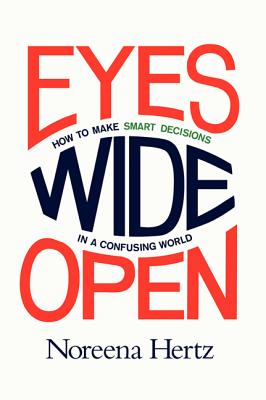
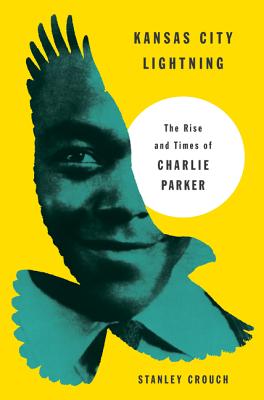
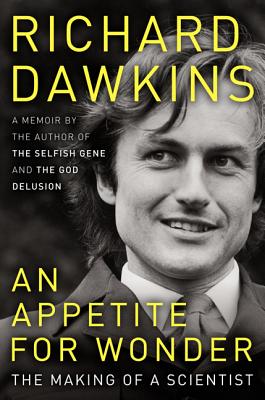
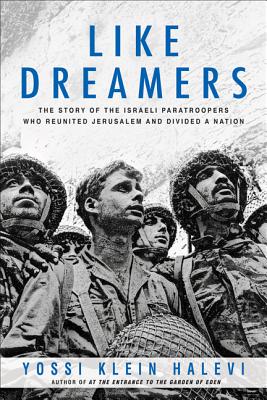
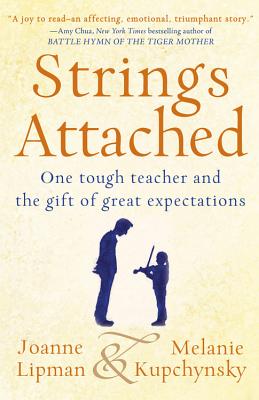


No comments:
Post a Comment